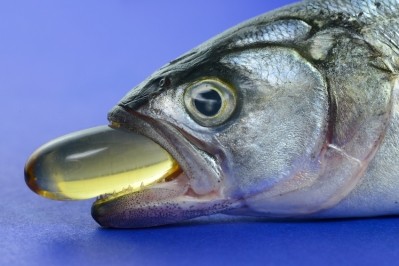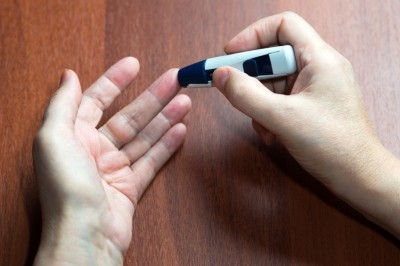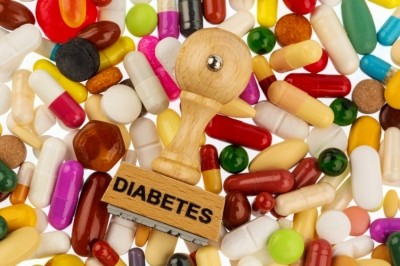Special Edition: Diabetes
How can nutrition aid diabetes management?

Changes in nutrition and diet, in addition to exercise, are an important part of diabetes management. Yet according to the American Diabetes Association (ADA), many misconceptions still exist concerning nutrition and diabetes.
In a 2004 position statement published in Diabetes Care, the ADA said that “nutrition recommendations that have little or no supporting evidence have been and are still being given to persons with diabetes.”
Good nutrition?
The nutritional goals for diabetes are generally aimed at attaining or maintaining optimal metabolic functions; these include maintaining normal – or close to normal – blood glucose levels, improving blood lipid and lipoprotein profiles, and reducing blood pressure.
All of these goals relate to the prevention or reversal of underlying conditions associated with diabetes, including obesity, dyslipidemia, cardiovascular disease, hypertension and kidney damage (nephropathy).
Fatty deposits and energy balance
The effects of obesity on insulin resistance mean that weight loss is an important objective for people with type-2 diabetes. Studies have shown that weight loss in people with type-2 diabetes is associated with decreased insulin resistance, improved measures of glycaemia and dyslipidemia, and reduced blood pressure.
Research has also suggested that fatty deposits can also play a major role in the development of type-2 diabetes by disturbing vital functions of key organs such as the liver, kidneys and pancreas. In doing so, it is believed that the fatty deposits interfere with important metabolic functions including the production of insulin and the storage of glucose.
A recent study published in the journal Diabetologia reported that an extreme low calorie diet could reverse the condition in just eight weeks. The authors of the study found that a diet of 600 calories a day for two months removed excess fat deposits that clog up the pancreas, thus allowing normal insulin secretion to be restored.
Speaking about the implications of these findings, Professor Roy Taylor from the University of Newcastle, UK, and lead researcher, said: “It has long been believed that someone with Type-2 diabetes will always have the disease, and that it will steadily get worse … we have shown that we can reverse the condition.”
“We believe this shows that Type-2 diabetes is all about energy balance in the body,” he explained, “if you are eating more than you burn, then the excess is stored in the liver and pancreas as fat which can lead to Type-2 diabetes in some people.”
Macronutrients and insulin resistance
In addition to calorie restriction and weight loss, there are several dietary modifications that can be beneficial for people with type-2 diabetes. Reductions in dietary intakes of saturated fat, cholesterol, and sodium can help to improve measures of dyslipidemia and hypertension in diabetics, whilst the proper management of blood glucose through changes in carbohydrate intake is also essential to avoid further complications.
Foods with a low Glycemic Index (GI) are also a means of controlling blood sugar levels, because slow release carbohydrates – those with a low GI – may help balance blood sugar levels, whilst replacing carbohydrate with monounsaturated fat has also been suggested to reduce postprandial glycemia and triglyceridemia.
Research has also suggested that increased fibre may benefit type-2 diabetics by delivering healthier glycemic and insulin responses. A study investigating the possible benefits of low-sugar, high-fibre cranberries noted that fibre is component lacking in the diet of many diabetics.
The authors of the study noted that added fibre “may slow absorption of glucose, helping regulate blood sugar … The combination of less sugar and high fibre could be of benefit to the type-2 diabetic.”
Micronutrients and oxidative stress
Oxidative stress has been reported to be a key driver in the onset of insulin resistance, while diabetes itself is also associated with increases in oxidative stress. Research has suggested that increased in oxidative stress could lead to diabetes because pancreatic cells are particularly vulnerable to reactive oxygen species – due to their low free-radical quenching enzymes.
“Thus, by damaging mitochondria, oxidative stress could induce apoptosis [cell death] of pancreatic beta cells, blunt insulin secretion and dysregulate glucose levels,” said the authors of a 2010 review led by Dr Demosthenes Panagiotakos from Harokopio University, Greece. (Nutrition, Metabolism and Cardiovascular Diseases: doi: 10.1016/j.numecd.2009.11.005).
“Dietary modification towards higher consumption of antioxidants should be implemented in public health strategies, in order to better control glycemic markers in individuals, and prevent the development of diabetes at the population level,” added the researchers.
Research has also suggested many dietary antioxidants including black tea polysaccharides, green tea polyphenols such as epigallocatechin-3-gallate (EGCG), resveratrol, broccoli extract, garlic oil, and the grapefruit extract narigenin, could play a role in reducing oxidative stress associated with diabetes.
In addition to dietary intake of antioxidants, studies have suggested increased intake of other vitamins and minerals can have beneficial impacts on the management of diabetes; including vitamin D and coffee.
Deficiencies of minerals such as potassium, magnesium, zinc, and chromium, have been suggested to aggravate carbohydrate intolerances, for example. Whilst chromium supplementation has been reported to have beneficial affects on the control of blood glucose levels.
The ingredients mentioned in this article are used purely as examples and are not intended to be an exhaustive list.
You can find the first part of NutraIngredients special edition on diabetes by clicking here.















